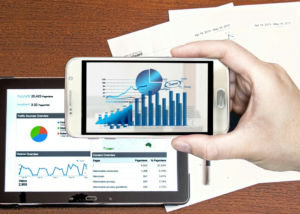Unlocking Growth and Sustainability: The Importance of Historical Business Performance
- toqqaglobal
- September 11, 2024
- 9:33 am


In the dynamic landscape of commerce and trade, small and medium-sized enterprises (SMEs) often find themselves navigating through myriad challenges and opportunities. One of the most potent tools at their disposal, yet often overlooked, is the systematic recording and analysis of historical business performance data. Coupling this with sustainability data not only strengthens their growth trajectory but also enhances their trade profile in an increasingly eco-conscious market.
The Power of Historical Business Performance Data:
Recording historical business performance data entails meticulously tracking metrics such as revenue, expenses, customer trends, and operational efficiency over time. Here’s why this practice is indispensable for SMEs:
1. Informed Decision-Making: Historical data provides a wealth of insights that can guide strategic decisions. By analysing past performance, SMEs can identify trends, understand seasonality, and forecast future performance more accurately. This data-driven approach enables businesses to make informed decisions about inventory management, marketing strategies, and resource allocation.
2. Identifying Growth Opportunities: Patterns and trends emerging from historical data can highlight growth opportunities that might otherwise go unnoticed. For instance, an uptick in sales during a particular period or the success of a specific product line can inform future business strategies, helping SMEs to capitalise on what works best.
3. Enhancing Financial Management: Maintaining comprehensive records of revenue and expenses over time allows SMEs to better manage their finances. It aids in budgeting, identifying cost-saving opportunities, and ensuring financial stability. SMEs can also leverage this data when seeking funding, as it demonstrates a clear understanding of their financial health to potential investors or lenders.
4. Benchmarking and Performance Monitoring: Historical data serves as a benchmark against which current performance can be measured. By setting performance benchmarks based on past data, SMEs can track their progress, evaluate the effectiveness of business strategies, and make necessary adjustments to stay on course.

Integrating Sustainability Data:
As the global marketplace becomes more environmentally conscious, incorporating sustainability data into business records is not just a trend but a necessity. Here’s why sustainability data is crucial for SMEs:
1. Building a Positive Brand Image: Consumers are increasingly favoring businesses that demonstrate a commitment to sustainability. By tracking and reporting sustainability metrics such as carbon footprint, waste reduction, and energy usage, SMEs can build a positive brand image that resonates with eco-conscious customers.
2. Meeting Regulatory Requirements: Governments and industry bodies are introducing stricter regulations around environmental impact. Keeping detailed sustainability records ensures that SMEs can comply with these regulations, avoiding potential fines and legal issues.
3. Enhancing Competitiveness: Sustainability is becoming a key differentiator in the market. SMEs that can showcase their sustainability efforts stand out from competitors and attract environmentally conscious customers, partners, and investors. This competitive edge can translate into increased market share and revenue growth.
4. Long-Term Cost Savings: Tracking sustainability data helps identify inefficiencies and areas where resource usage can be optimised. This can lead to significant cost savings in the long run. For instance, reducing energy consumption not only lowers operational costs but also minimises environmental impact.
The Synergy of Combined Data:
Combining historical business performance data with sustainability data creates a powerful synergy that drives comprehensive growth and resilience for SMEs:
1. Holistic Performance Analysis: Integrating these data sets allows SMEs to perform a holistic analysis of their operations. They can evaluate how sustainability initiatives impact financial performance and vice versa, leading to more balanced and strategic decision-making.
2. Strategic Planning: With insights from both financial and sustainability perspectives, SMEs can craft robust strategic plans that align with both profit and purpose. This integrated approach ensures that business growth does not come at the expense of environmental and social responsibilities.
3. Transparent Reporting: Combined data enhances transparency in reporting, which is increasingly demanded by stakeholders. SMEs can provide detailed reports that showcase their financial health and sustainability efforts, building trust and credibility with customers, investors, and regulators.
Conclusion: For SMEs, the journey to growth and sustainability begins with the diligent recording and analysis of historical business performance and sustainability data. This dual focus not only equips them with the insights needed for informed decision-making and strategic planning but also positions them as responsible and forward-thinking players in the commerce and trade arena.
By embracing this data-driven approach, SMEs can unlock new opportunities, drive sustainable growth, and contribute positively to the planet while enhancing their trade profile in a competitive market.
Copyright © 2024 TOQQA Cross Trade. All Rights Reserved.


